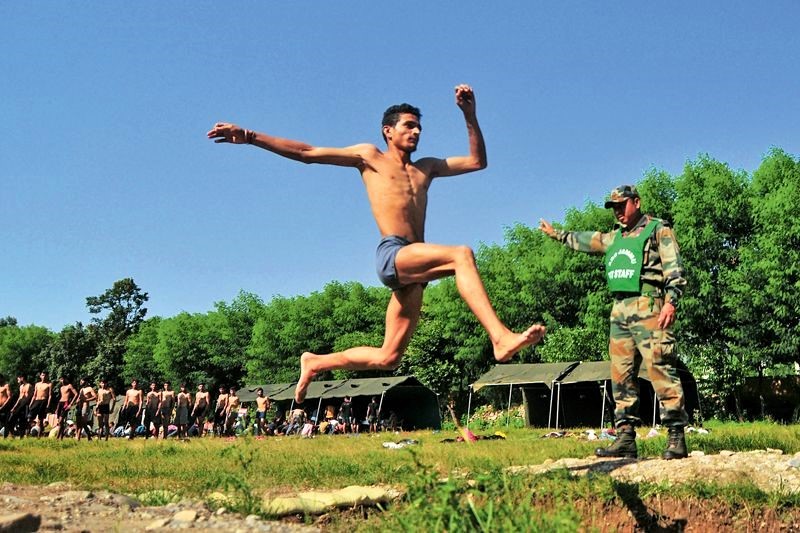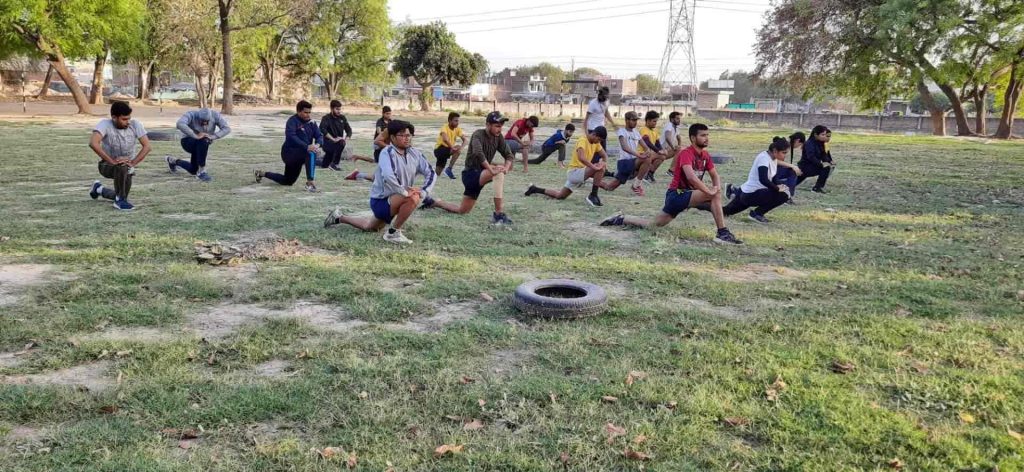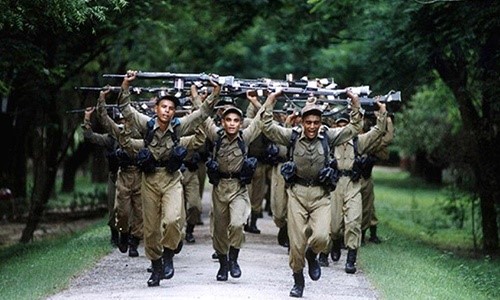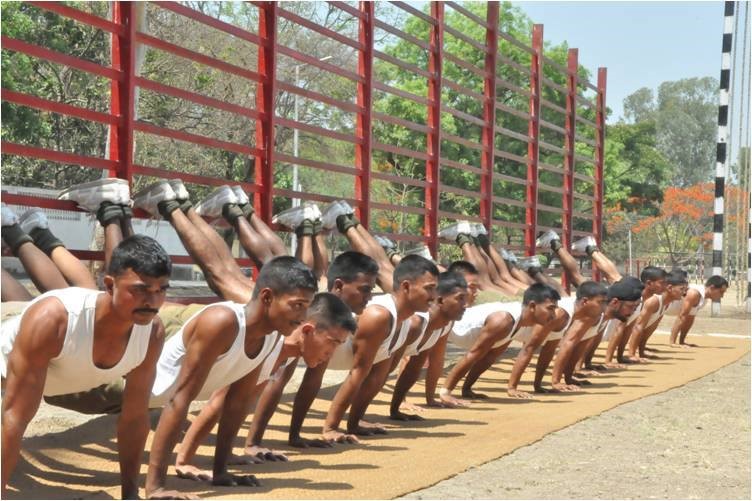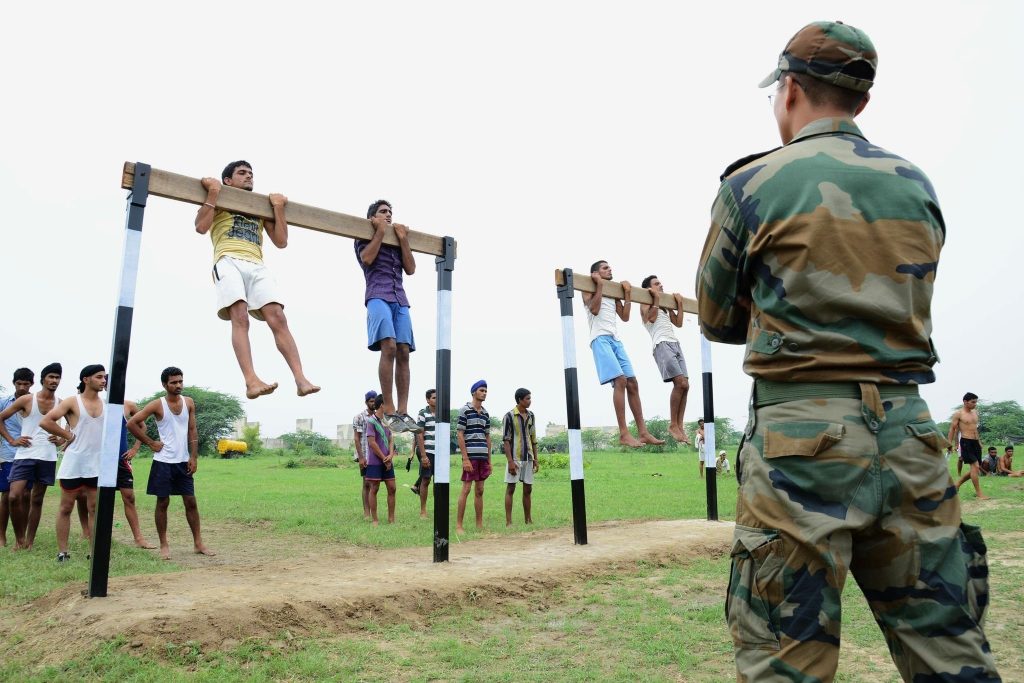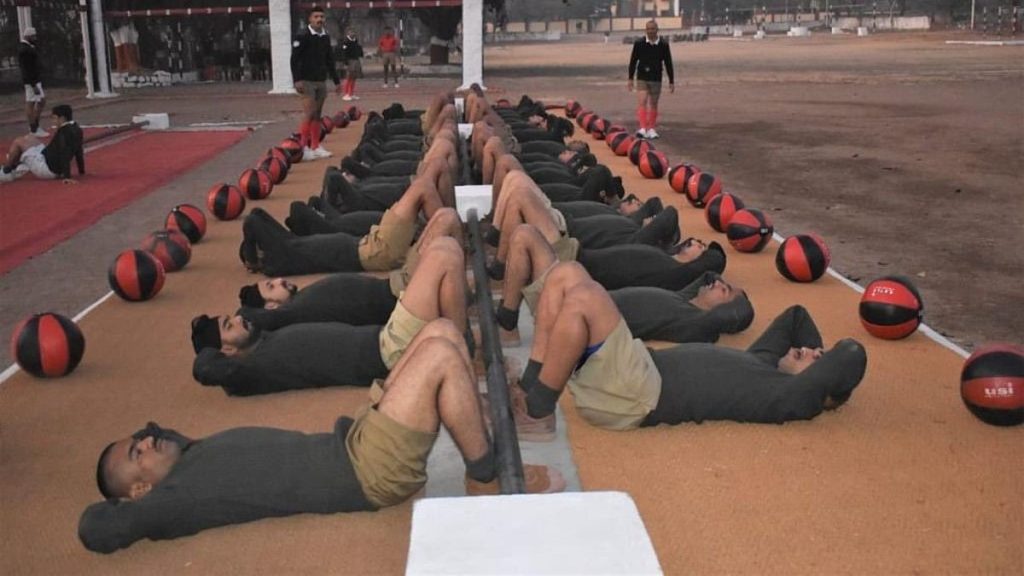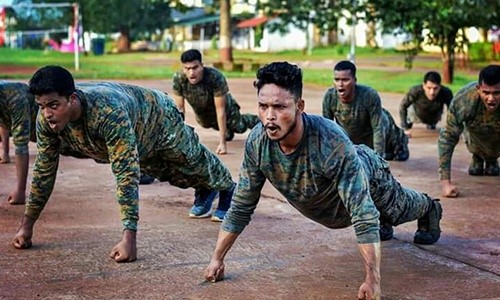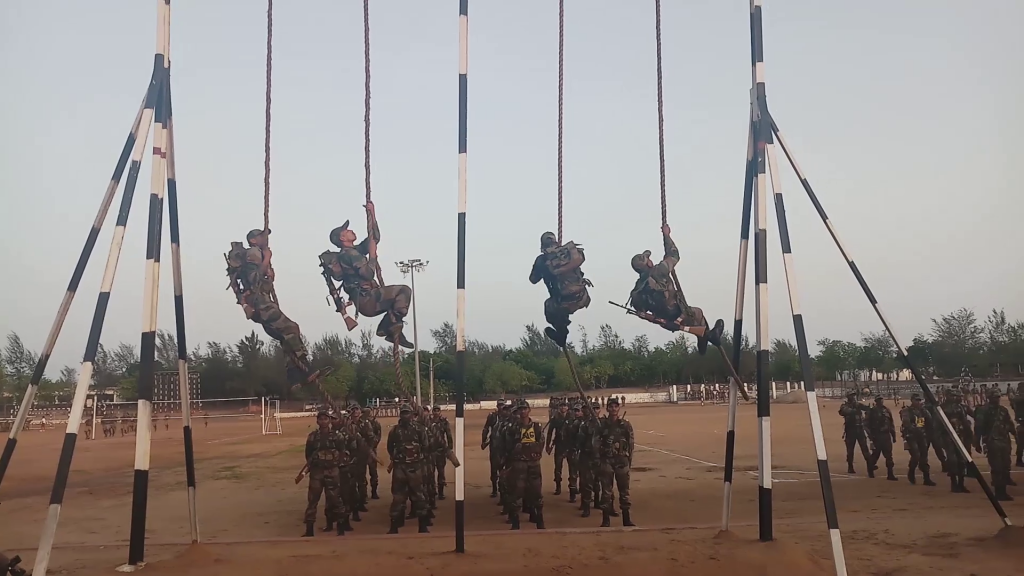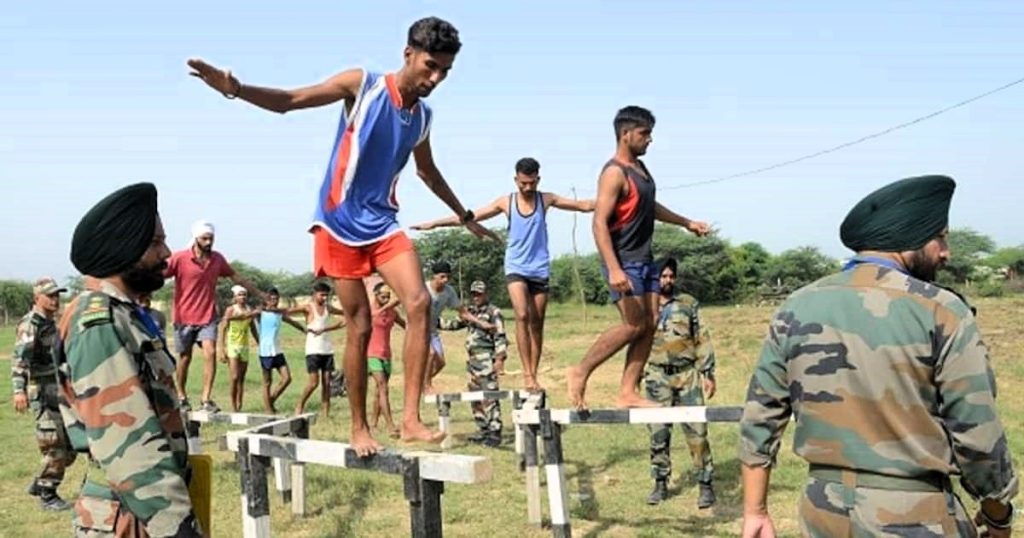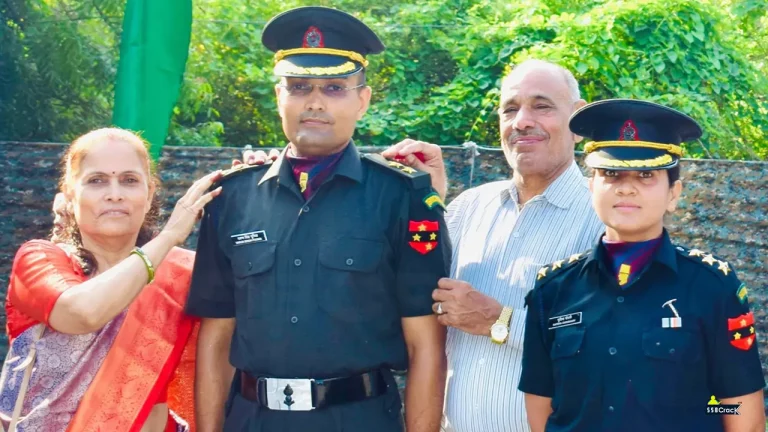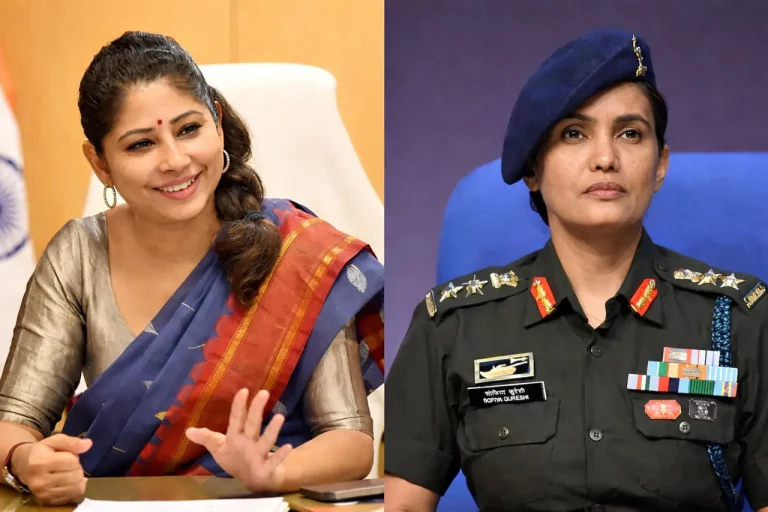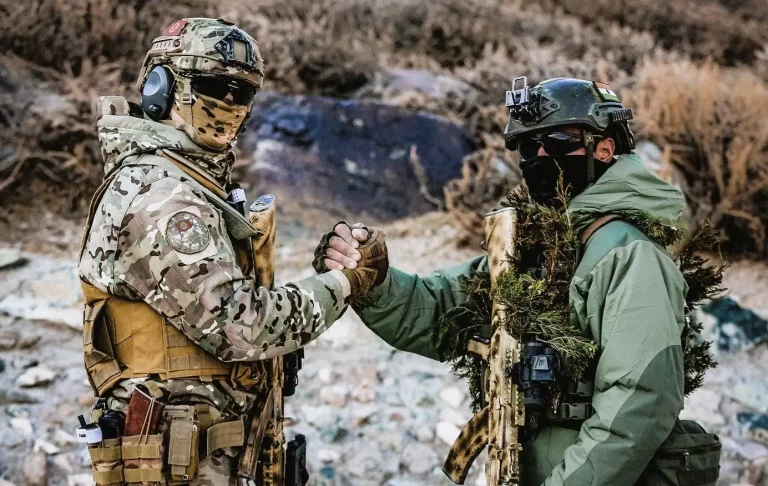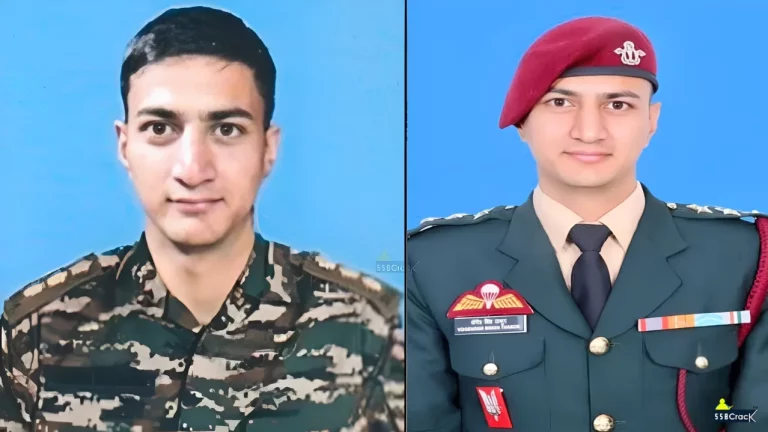Physical fitness for Defence is not just a desirable trait but an essential requirement for individuals aspiring to join the defence forces. Whether it’s the Indian Army, Navy, or Air Force, candidates need to meet rigorous physical standards to qualify for enlistment. In this comprehensive article, we will delve into the reasons why physical fitness is paramount for defence aspirants, exploring its significance in various aspects of military life, including training, combat readiness, and overall operational effectiveness.
Understanding the Importance of Physical Fitness
Physical fitness for Defence is defined as the ability to carry out daily tasks with vigor and alertness, without undue fatigue, and with ample energy to enjoy leisure-time pursuits and respond to emergencies. For defence aspirants, physical fitness goes beyond mere athleticism; it is a fundamental aspect of their preparation for the demanding challenges they will face in their military careers.
1. Combat Readiness
One of the primary reasons why physical fitness for Defence is essential for defence aspirants is combat readiness. Military personnel are often required to operate in austere environments, facing physically demanding tasks such as carrying heavy loads, traversing challenging terrain, and engaging in prolonged periods of physical exertion during combat operations. A high level of physical fitness ensures that soldiers can perform these tasks effectively, enhancing their survivability and mission success on the battlefield.
2. Operational Effectiveness
Physical fitness for Defence directly impacts operational effectiveness by enabling defence personnel to execute their duties with precision and agility. Whether conducting reconnaissance missions, patrolling hostile territories, or engaging in close-quarters combat, physically fit individuals possess the strength, endurance, and mobility required to navigate complex operational environments and adapt to rapidly changing circumstances.
3. Health and Injury Prevention
Maintaining optimal physical fitness promotes overall health and reduces the risk of injuries among defence aspirants. Regular exercise strengthens muscles, bones, and connective tissues, improving resilience against injuries caused by physical strain or trauma. Additionally, physical fitness is associated with lower rates of chronic diseases such as obesity, diabetes, and cardiovascular disorders, thereby ensuring that military personnel remain healthy and mission-ready throughout their careers.
4. Mental Resilience
Physical fitness is closely linked to mental resilience, which is essential for coping with the stress and adversity inherent in military life. Engaging in regular exercise releases endorphins, neurotransmitters that promote feelings of well-being and reduce stress and anxiety. Moreover, physical challenges such as endurance training and obstacle courses build mental toughness, instilling confidence and discipline in defence aspirants as they confront the mental and emotional rigors of military service.
5. Team Cohesion
Physical fitness fosters a sense of camaraderie and teamwork among defence aspirants, facilitating effective collaboration and mutual support within military units. Shared physical training experiences, such as group workouts and team sports, create bonds of trust and solidarity among service members, enhancing unit cohesion and morale. In combat situations, cohesive teams are better equipped to coordinate their actions and achieve mission objectives with efficiency and unity of purpose.
Components of Physical Fitness
To understand the importance of physical fitness for defence aspirants, it is essential to examine its key components, each of which contributes to overall readiness and performance in military settings.
1. Cardiorespiratory Endurance
Cardiorespiratory endurance refers to the ability of the cardiovascular and respiratory systems to sustain prolonged physical activity. Defence aspirants must possess adequate cardiorespiratory fitness to endure sustained marches, long-range patrols, and other strenuous activities common in military operations.
2. Muscular Strength and Endurance
Muscular strength and endurance are crucial for tasks such as lifting heavy objects, carrying equipment, and engaging in hand-to-hand combat. Defence aspirants undergo strength training exercises to develop the muscular power and stamina required for their operational roles.
3. Flexibility
Flexibility is the range of motion around a joint or group of joints. Military personnel must maintain flexibility to perform tasks that require bending, reaching, and twisting movements, particularly in confined or awkward spaces.
4. Speed and Agility
Speed and agility are essential for manoeuvring in dynamic and unpredictable environments, evading enemy fire, and reacting quickly to changing tactical situations. Defence aspirants train to improve their speed, agility, and reaction times through drills and agility exercises.
5. Body Composition
Body composition refers to the proportion of fat, muscle, bone, and other tissues in the body. Defence aspirants strive to maintain optimal body composition through regular exercise and a balanced diet, as excess body fat can impair physical performance and increase the risk of injuries.
Role of Physical Fitness in Defence Training
Physical fitness for Defence is integral to every aspect of defence training, from basic military indoctrination to specialized skill development and operational readiness. Defence training programs emphasize physical conditioning alongside technical proficiency and tactical proficiency, recognizing that physical fitness forms the foundation upon which all other military competencies are built.
1. Basic Training
During basic training, recruits undergo intensive physical conditioning designed to build strength, endurance, and resilience. Daily physical training sessions encompass a variety of activities, including running, calisthenics, obstacle courses, and team-building exercises, to prepare recruits for the physical demands of military life.
2. Specialized Training
Specialized training courses, such as infantry training, combat diver courses, and airborne operations, require candidates to meet specific physical fitness standards tailored to their operational roles. These courses incorporate specialized physical conditioning regimens and performance assessments to ensure that candidates possess the requisite physical capabilities for their assigned duties.
3. Continuing Education
Physical fitness remains a priority throughout a defence aspirant’s career, with ongoing opportunities for physical training, skill development, and performance evaluation. Military units conduct regular physical fitness assessments to monitor individual readiness levels and identify areas for improvement, promoting a culture of lifelong fitness and professional development.
Strategies for Maintaining Physical Fitness
For defence aspirants, maintaining physical fitness requires dedication, discipline, and a structured approach to training. Here are some practical strategies for staying fit and preparing for a career in the defence forces:
1. Establish a Regular Exercise Routine
Create a comprehensive exercise routine that incorporates cardiovascular, strength training, flexibility, and agility exercises. Aim for a balanced workout regimen that targets all major muscle groups and includes both aerobic and anaerobic activities.
2. Focus on Functional Fitness
Emphasize functional fitness exercises that replicate the movements and demands of military tasks, such as running, hiking, bodyweight exercises, and functional strength training. Incorporate activities that improve agility, coordination, and proprioception to enhance overall physical readiness.
Best Practices to be Physically fit for All Defence Aspirants
3. Set Realistic Goals
Set specific, measurable, achievable, relevant, and time-bound (SMART) fitness goals to track your progress and stay motivated. Whether it’s improving your running time, increasing your push-up repetitions, or reducing your body fat percentage, establish clear objectives that align with your aspirations and capabilities.
How To Maintain Physical Fitness For SSB Interview
4. Prioritize Recovery and Nutrition
Allow adequate time for rest, recovery, and nutrition to support your training efforts and optimize physical performance. Ensure that you get enough sleep, hydrate adequately, and consume a balanced diet rich in protein, carbohydrates, healthy fats, vitamins, and minerals to fuel your body and promote muscle repair and growth.
5. Seek Professional Guidance
Consult with fitness professionals, coaches, or military trainers to develop a personalized training plan tailored to your individual needs and goals. Consider joining fitness classes, boot camps, or military-style
FAQs
1. Why is physical fitness important for defence aspirants?
Physical fitness is essential for defence aspirants because it reflects their readiness to undertake the physical demands of military service, contributing to operational effectiveness and overall success in the Armed Forces.
2. How does physical fitness influence the selection process for the Defence Services?
Physical fitness plays a significant role in the selection process for the Defence Services, particularly during assessments such as the Service Selection Board (SSB) interviews. Candidates are evaluated on their physical readiness for military service, including endurance, strength, agility, and overall health.
3. What are the benefits of being physically fit for defence aspirants?
Being physically fit offers numerous benefits for defence aspirants, including improved performance in physical tests, enhanced resilience to stress, better leadership potential, stronger teamwork skills, and long-term readiness for military service.
4. What physical fitness standards are assessed during SSB interviews?
Physical fitness standards assessed during SSB interviews may include tests of endurance, strength, agility, flexibility, coordination, and overall medical fitness. These tests aim to evaluate candidates’ physical readiness for military training and operations.
5. How can defence aspirants improve their physical fitness?
Defence aspirants can improve their physical fitness by establishing a regular exercise routine, setting specific fitness goals, practicing SSB-specific exercises, maintaining a healthy lifestyle, and seeking professional guidance from fitness experts or military trainers.
